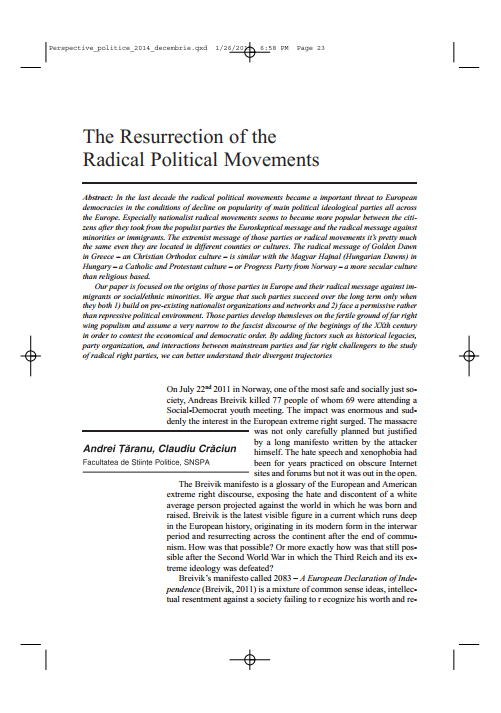The Resurrection of the Radical Political Movements
Abstract
In the last decade the radical political movements became a important threat to European democracies in the conditions of decline on popularity of main political ideological parties all across the Europe. Especially nationalist radical movements seems to became more popular between the citizens after they took from the populist parties the Euroskeptical message and the radical message against minorities or immigrants. The extremist message of those parties or radical movements it's pretty much the same even they are located in different counties or cultures. The radical message of Golden Dawn in Greece - an Christian Orthodox culture - is similar with the Magyar Hajnal (Hungarian Dawns) in Hungary - a Catholic and Protestant culture - or Progress Party from Norway - a more secular culture than religious based.
Our paper is focused on the origins of those parties in Europe and their radical message against immigrants or social/ethnic minorities. We argue that such parties succeed over the long term only when they both 1) build on pre-existing nationalist organizations and networks and 2) face a permissive rather than repressive political environment. Those parties develop themsleves on the fertile ground of far right wing populism and assume a very narrow to the fascist discourse of the beginings of the XXth century in order to contest the economical and democratic order. By adding factors such as historical legacies, party organization, and interactions between mainstream parties and far right challengers to the study of radical right parties, we can better understand their divergent trajectories.




